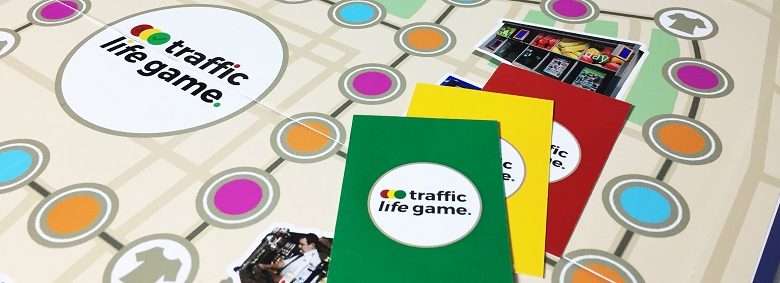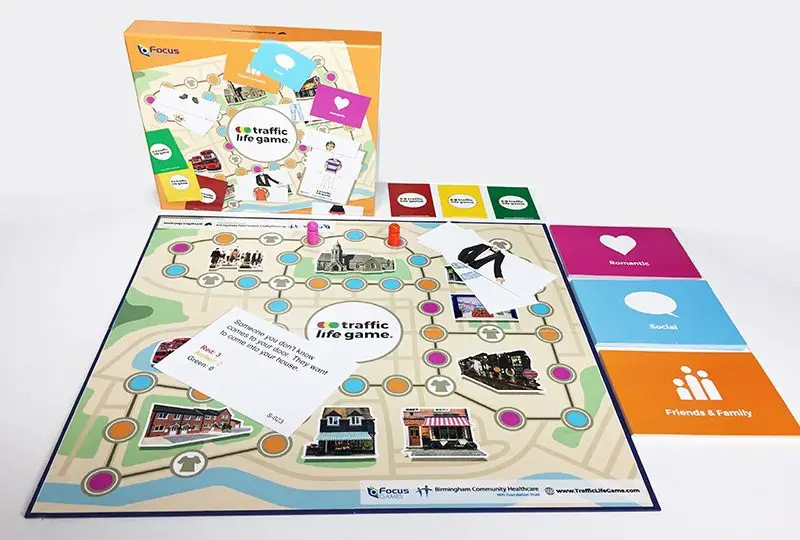
The Traffic Life Game: making talking about tricky situations easier
Earlier this year we heard about the new board game, Removing Barriers, which aimed to help people and businesses understand the access needs of people with disabilities. Now, a new game has been created, The Traffic Life Game, to help people with learning disabilities talk about tricky social situations and relationships.
Relationships and social situations are full of grey areas and, sometimes, risks. Whether it’s friends, family, work or romantic relationships, we all sometimes wonder what’s the best way to behave or act. There’s often no right answer, and deciding what to do isn’t always obvious.
Many people take this decision-making in our stride; it’s part of being an adult.
For adults with learning disabilities, the grey areas and risks can be very difficult to spot and respond to. People with learning disabilities are often excluded from conversations about relationships and social situations. It may be assumed that they won’t understand, or that they aren’t interested.
But, people with learning disabilities have active social lives and relationships, so it’s really important that they have the opportunity to talk about relationships and the issues that come along with them. It’s vital that they can learn how to have safe and fulfilling social lives and relationships.
To help make these conversations easier, more interesting and memorable for people with learning disabilities, a new board game has been developed. The aim is for it to help people talk more openly about these issues, as well as learn about how to deal with them in the real world.
The Traffic Life Game is a simple and entertaining board game, created in conjunction with educational games specialists Focus Games, and clinical psychologists at Birmingham Community Healthcare NHS Foundation Trust. It’s fun, informative and a great way to encourage informal discussions about the potential risks associated with everyday social situations.
Using the game is very simple. A facilitator, such as a support worker, leads a game session with up to four individuals with learning disabilities. A simple traffic light risk assessment system helps players recognise and respond to potentially risky situations presented by the game.
Here are a few example situations featured in the game:
- You’re at a party and your friend makes you drink lots of alcoholic drinks.
- Your date wants to take you to their house.
- A company calls you and asks you to give your bank details over the phone.
The facilitator then leads discussions about potential risks in each situation, helping players decide on the best course of action. The intention is for players to apply this risk assessment system to their daily lives to help them make safer decisions.

The game is portable and flexible so can be used in a range of settings and at any stage in life. For example, it’s particularly useful for when people are starting to gain more independence, such as moving out of their family home to supported or independent living, or leaving education to go into employment. It’s these times where they will be dealing with new people and different situations much more frequently.
The Traffic Life Game provides a great opportunity for people with learning disabilities to talk about relationships, risks and how to keep themselves safe. By normalising conversations about these subjects, it aims to help make the grey areas clearer and ensure that people with learning disabilities have a simple process at hand to help them make decisions and identify potentially risky situations.
“The Traffic Life Game is a prime example of the creative methods that we believe can really help individuals early on in their adult lives… We were very impressed with the focus the game places on emotional and situation awareness.” Dr Clive Thursfield, Birmingham Community Healthcare NHS Foundation Trust.
For more info and to buy the game, visit www.trafficlifegame.com.
By Focus Games
Get in touch by messaging us on Facebook, tweeting us @DHorizons, emailing us at editor@disabilityhorizons.com or leaving your comments below.